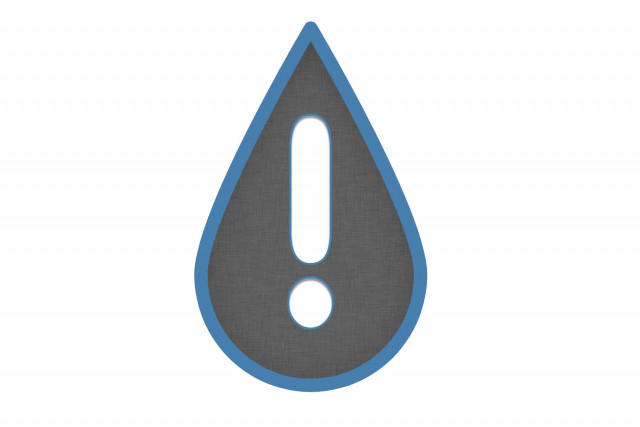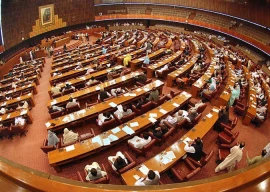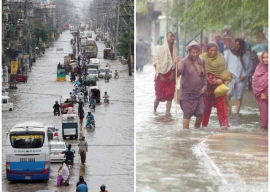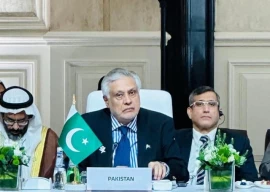
Experts have warned that rising water insecurities can propel conflicts in the future if not conserved properly and utilised frugally.
They also urged the need for proper conservation and management of water resources in the country.
They were speaking at a seminar titled “Water for Future: Perspectives from Pakistan” to mark the the World Water Day here on Friday, said a press release.
The event was organised the Oxfam, the Strengthening Participatory Organisation (SPO), the Sustainable Development Policy Institute (SDPI), the International Union for Conservation of Nature (IUCN), the Pakistan Agricultural Research Council (PARC), the Indus Consortium and Mobilink.
SPO Executive-Director Naseer Memon said that there was no policy framework for water management in Pakistan.
“Equity and access to clean water and sanitation have become major issues for a number of local communities. Water variability is also high in the country, certain areas have higher availability of water resources while others continue to suffer from severe droughts. Policy frameworks should be developed at the local and provincial levels and should be consolidated into a comprehensive framework for the country.”
Researcher Dr Zaigham Habib observed that there was a need to ensure equitable water distribution across Pakistan. “Indigenous populations and communities should be made part of the development process,” he stressed.
SDPI Executive Director Abid Suleri said that there was a need for greater political wisdom to address policy gaps in water related policies. He said that the media and the civil society can play a key role in sensitising policy-makers over crucial issues.
Shahid Ahmed from the IUCN said that unless the sewage was not properly managed, water related issues cannot be resolved. The biogas produced from sewage can also be used as fuel for vehicles, he said.
“Water has become an increasingly scarce resource and as energy demand grows, conflicts over water will increase. Competition over water resources is already on the rise among municipalities, farmers, industrial and power suppliers, as evident in many parts of the world including Pakistan.”
Senior Adviser Climate Change at LEAD Pakistan Qamar Zaman said that climate change was now a priority agenda globally. However, the issue was not given as much importance in the country and Pakistan’s vulnerability to climate change has also been on the rise over the last few years, as evident by erratic movements in the frequency of rainfall. Pakistan’s climate change policy should focus on adoption of frameworks being developed globally, he recommended.
Project Director Sindh Water Sector Improvement Project Dr Fatah Murree said that at micro level we have water and sanitation issues, which should be addressed locally.
Community from all over the country also shared their problems related to water shortage, floods and health issues due to industrial wastage dumping in fresh water.
Climate Change Study Centre head at the SDPI Shakeel Ahmed said that water, energy and food securities were interdependent and a policy shift in one of the streams would affect others. There was a need to develop a policy framework that deals with all three of these issues in a holistic manner.
Muhammad Saleem Malik from the PARC presented case studies on the use of alternative energy tools, including solar powered pumps, for irrigation purposes.
Published in The Express Tribune, March 22nd, 2014.




















COMMENTS
Comments are moderated and generally will be posted if they are on-topic and not abusive.
For more information, please see our Comments FAQ